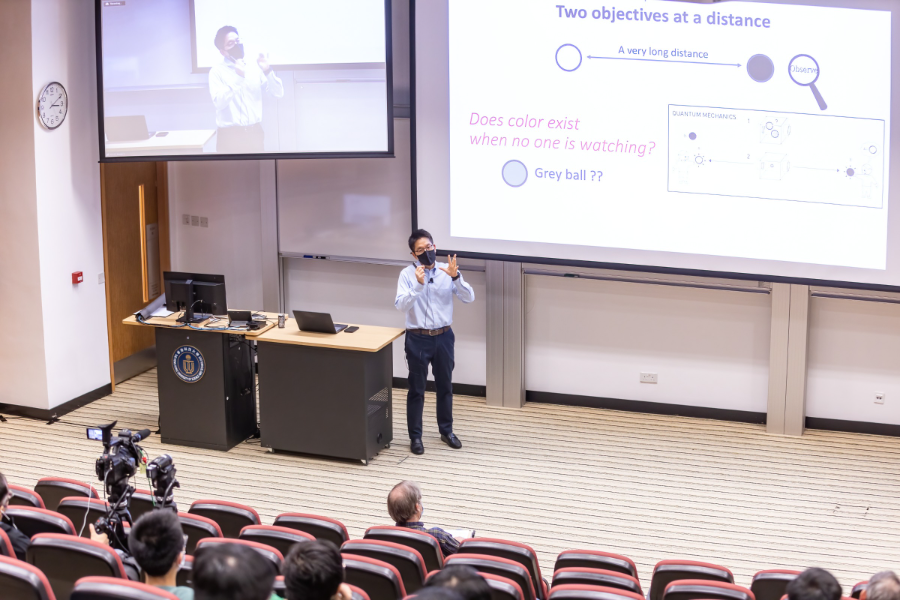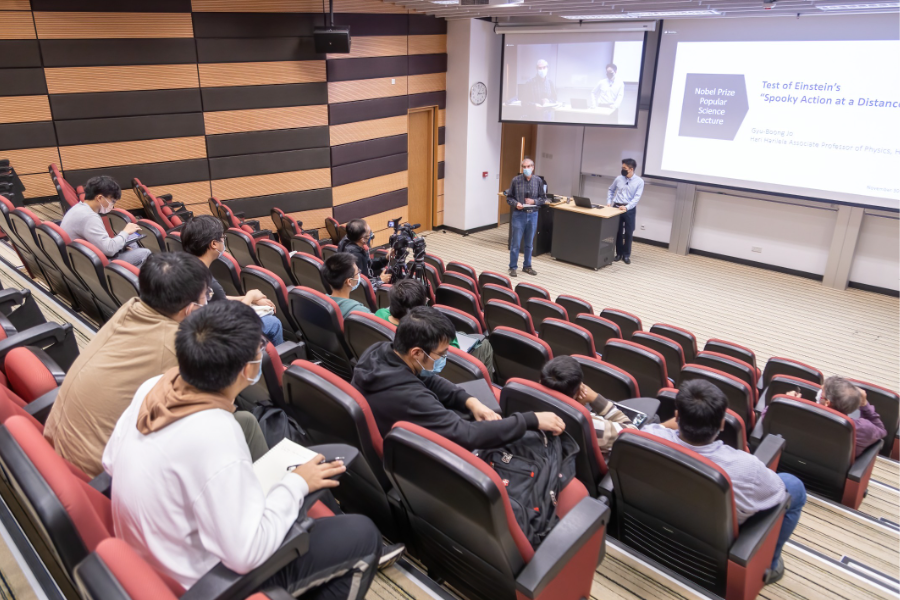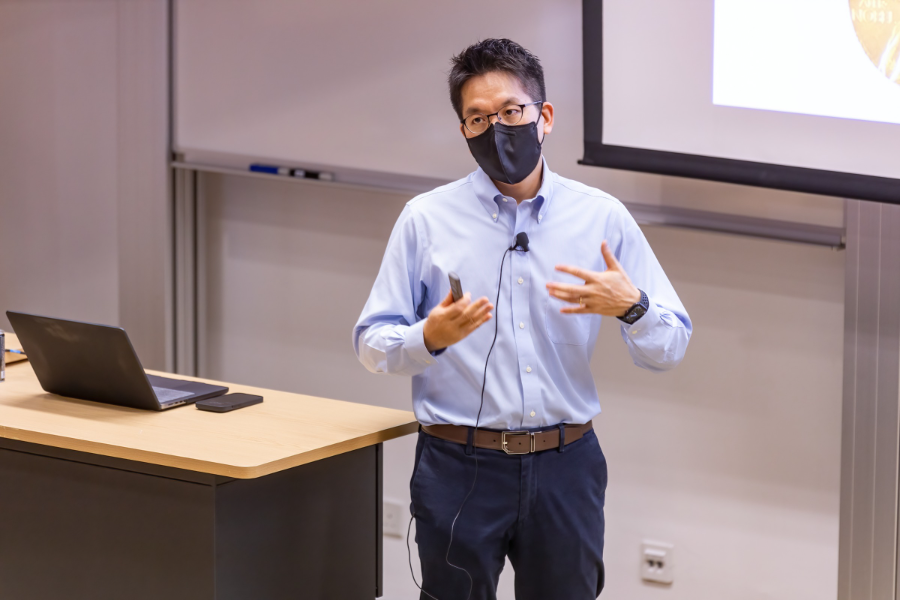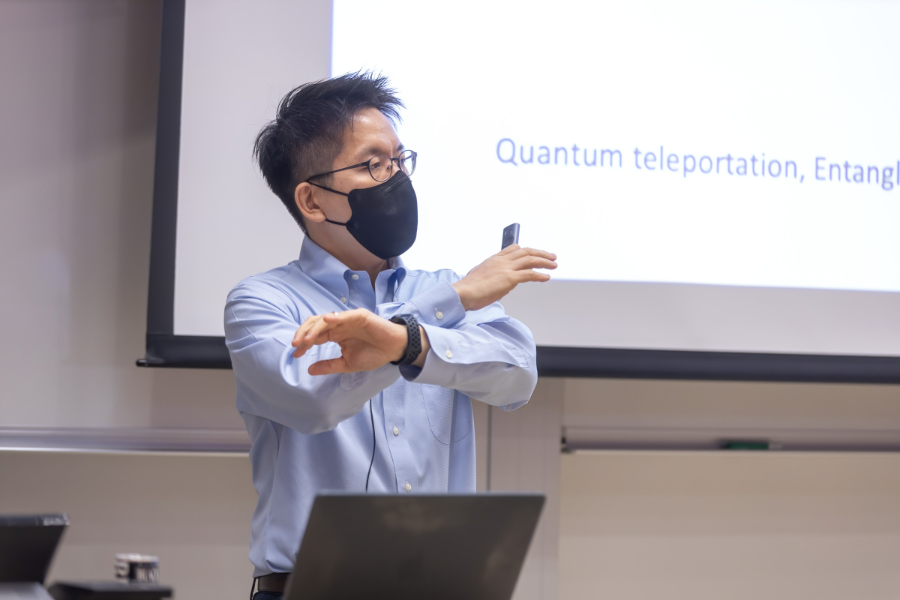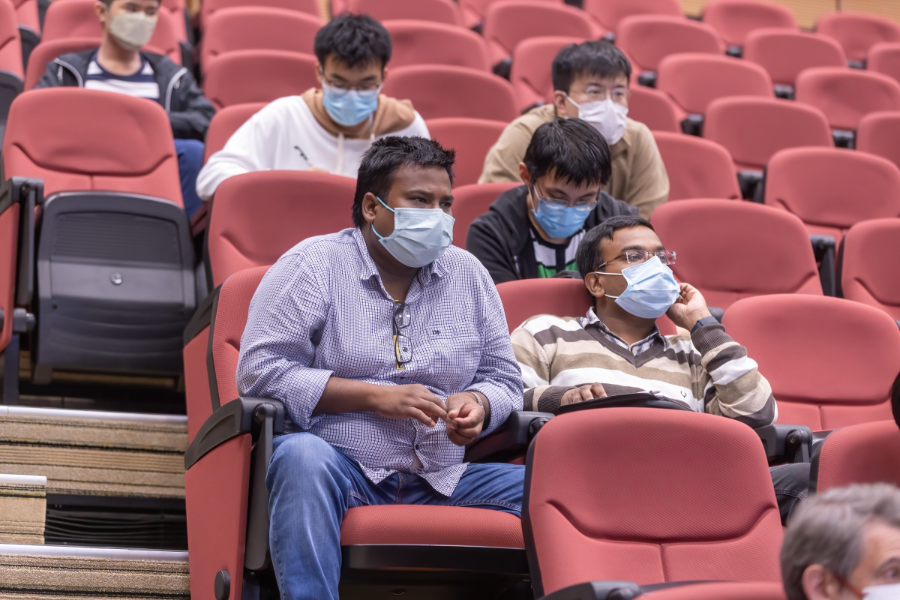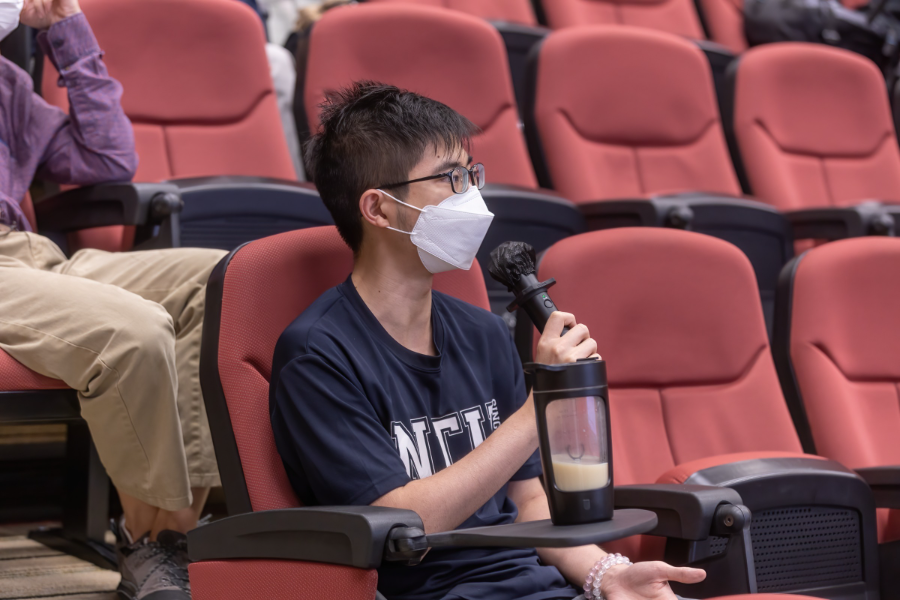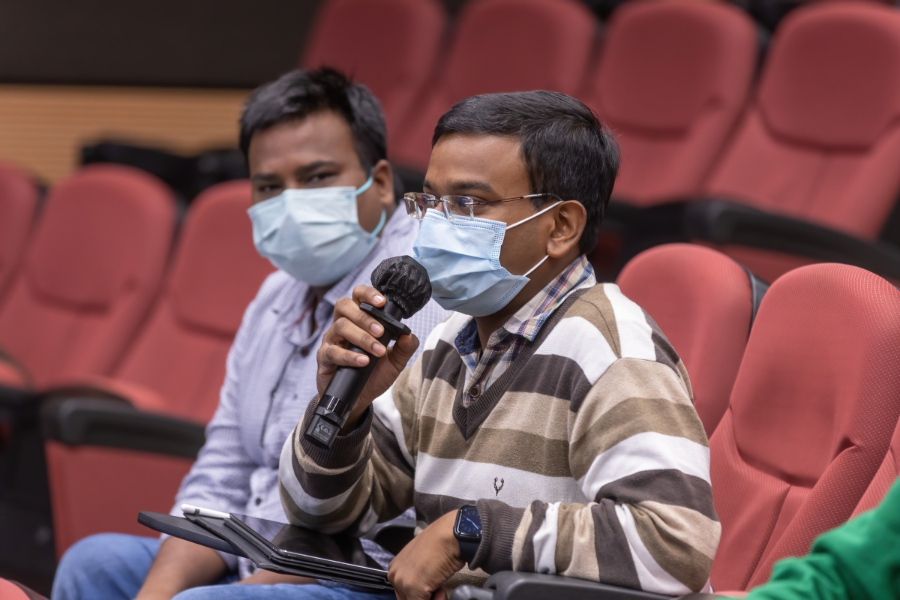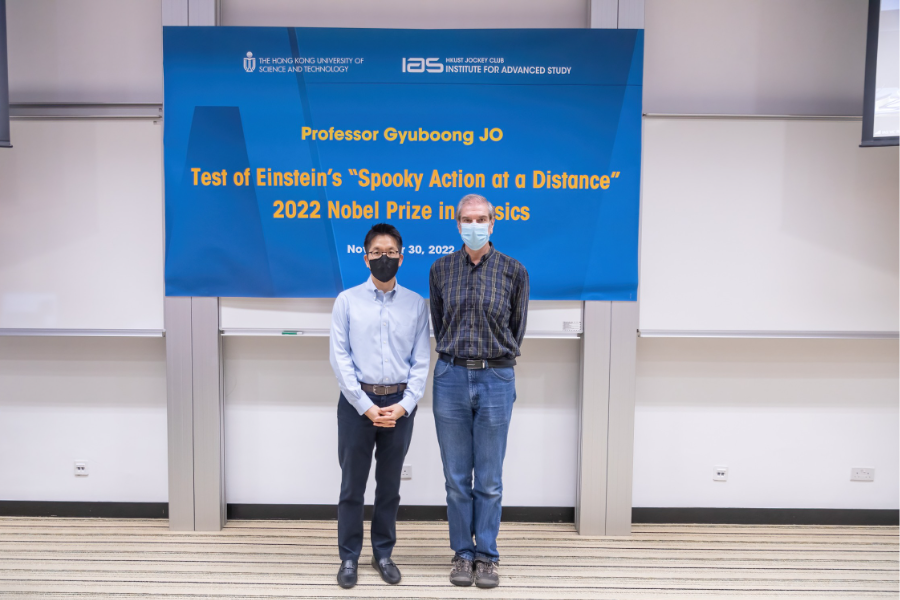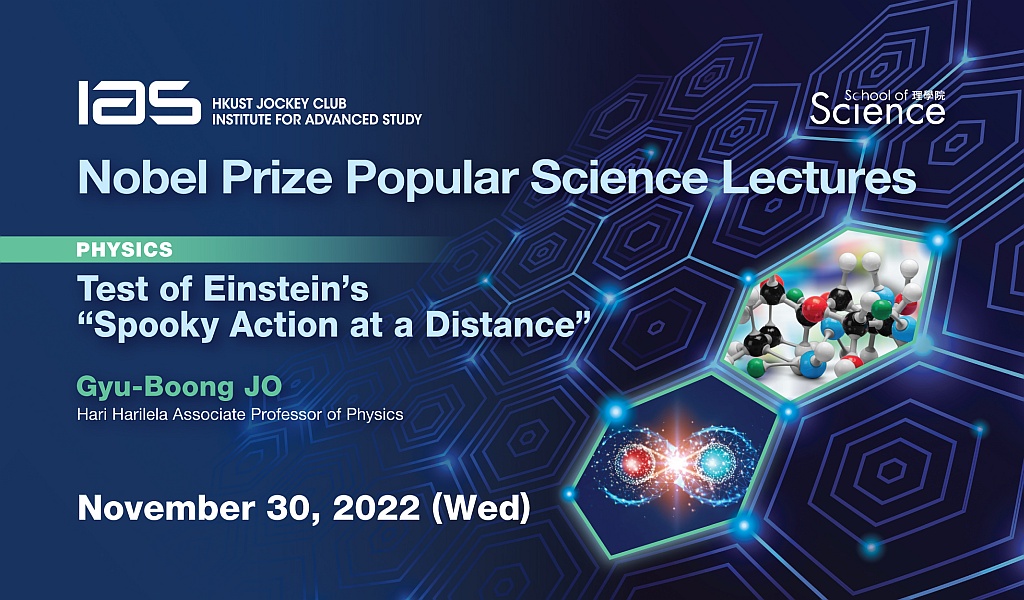Test of Einstein’s “Spooky Action at a Distance” – 2022 Nobel Prize in Physics
Mode of Event
-
In-person: Registration closed and walk-ins are welcome.
-
Zoom (Registration is NOT required): https://hkust.zoom.us/j/91218061026 (Webinar ID: 912 1806 1026 / Passcode: nobel2022)
Abstract
Since quantum mechanics was successfully developed about 100 years ago, its completeness has been questioned by several scientists including Einstein. He pointed out the spookiness of objects at a distance, which led to the test of the reality of quantum mechanics. Einstein's spooky phenomenon we now call entanglement allows two distinct quantum entities to exhibit correlated behavior even when they are physically separated without direct interaction.
This year’s Nobel laureates in Physics, Alain Aspect, John F. Clauser, and Anton Zeilinger, experimentally examined quantum entanglement by establishing the violation of Bell inequalities. Their pioneering works have laid out the foundation of quantum information science, leading to the development of cutting-edge quantum technology such as quantum computers, quantum networks, and secure quantum encrypted communication. This talk will explain the significance of the experiments on quantum entanglement at a relatively non-technical level.
About the speaker
Prof. Gyu-Boong JO is currently Hari Harilela Associate Professor in the Department of Physics at The Hong Kong University of Science and Technology (HKUST). He obtained his PhD and Bachelor’s degrees from the Massachusetts Institute of Technology and Seoul National University, respectively. He has received multiple awards including, the RGC Early Career Award (2014), the Croucher Innovation Award (2016), the HKUST School of Science Research Award (2019) and the RGC Research Fellowship (2021). Prof. Gyu-Boong Jo’s research focuses on the development of an atomic quantum simulator for the synthesis of novel quantum matter that is difficult to realize in nature. Recently, his research agenda continues to evolve and aims at developing a programmable quantum simulation platform for quantum computation with cold atoms.
Campus Access Control and Disease Prevention Measures
-
To enter the campus for this event, non-HKUST members who have signed up as Friends of HKUST via the event registration form will be registered as “visitors” by the event organizer to the University for their easy access thru the campus gates.
-
Except for exempted persons, all visitors entering the venue must comply with the ‘Vaccine Pass’ arrangements and other requirements under Cap.599F (See https://www.coronavirus.gov.hk/pdf/vp_ac.pdf)
-
Audience will be required to take temperature check at the entrance of the venue. Those with fever and/or upper respiratory tract infection (URTI) symptoms will be denied for entry.
-
Audience must properly wear a mask covering their nose and mouth at all times in the venue.
-
Audience should follow seating instruction imposed by onsite staff as special seating arrangements and capacity control will be implemented.

